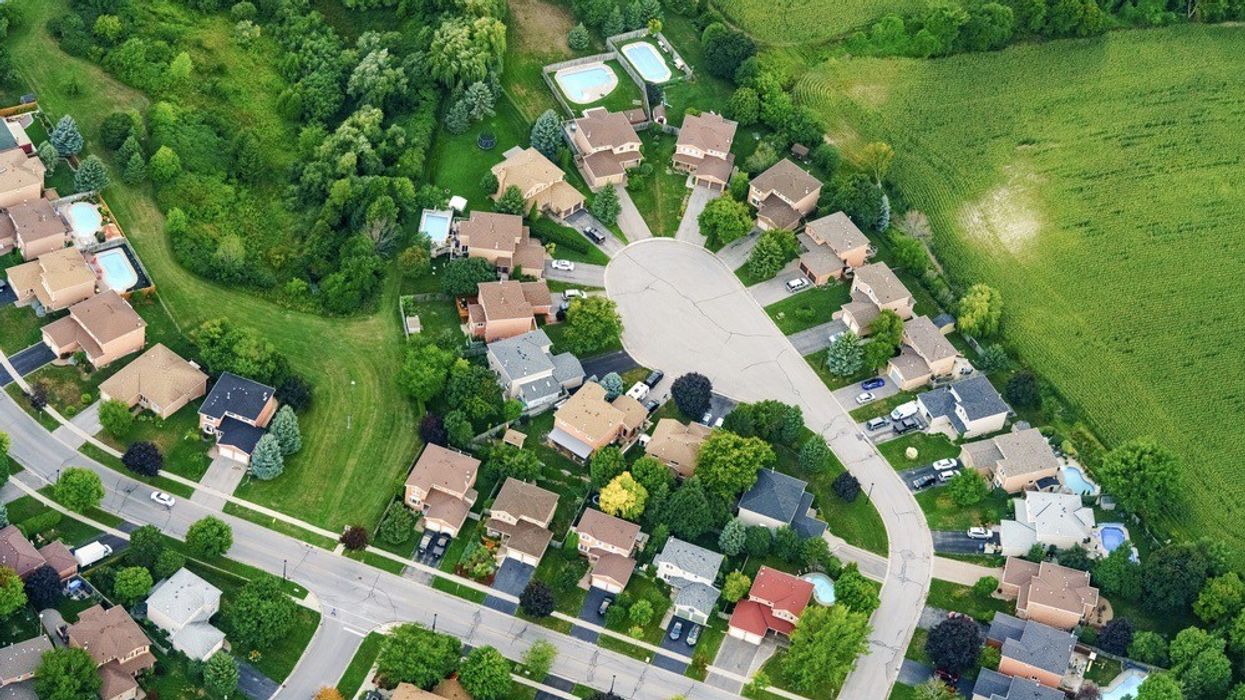Home prices may be dipping in some of Canada's priciest markets, but homes still haven't exactly become affordable. With high housing prices and the Bank of Canada's rising interest rates making it difficult for Canadians to purchase in their current community, the majority of Canadians now say they'd be willing to relocate just to be able to afford a home.
A report released by RE/MAX on Wednesday found that 64% of Canadians are willing to sacrifice their current locale and move elsewhere if it meant being able to purchase a home. How far they're willing to go varies, with 50% agreeing that the farthest they would move is 100 km. But 38% said they'd be willing to move to a different city, province, or region regardless of distance.
“Despite affordability challenges across the cost-of-living spectrum, Canadians are still eager to engage in the housing market -- even if it means making some sacrifices in the short-term to achieve affordable home ownership,” said RE/MAX Canada President Christopher Alexander.
READ: It's "Time For Action" On Housing Supply: RE/MAX Head
Changing locations isn't the only sacrifice Canadians said they would make. More than half -- 56% -- said they would be willing to sacrifice the type of home they purchase, and 29% said they would purchase a home under co-ownership with family and friends. Just over a quarter -- 27% -- said they'd be willing to rent a part of their home out for additional income. Some of these concession, realtors say, are already on the rise.
"As buyers navigate high housing prices, some regions across Western Canada are experiencing trends such as properties being purchased as a primary residence while also renting part of the home to supplement monthly mortgage payments," the report reads. "The pooling of finances between friends and family has continued to remain a trend, as noted by RE/MAX brokers in Victoria, BC, and Vancouver, BC."
And in Ontario cities like Hamilton, London, and Windsor, realtors have also seen an uptick in alternatives to traditional home ownership.
What Markets Are Still Affordable?
For 43% of Canadians, the high price of real estate in their area is a barrier to entry into the market -- a 1% jump from last year. The average monthly mortgage payments across Canada range from $1,492 to $6,314, which accounts for anywhere from 25.86% to 112.25% of Canadian's monthly income, the report says. In Metro Vancouver and the Greater Toronto Area, the country's two mosts expensive markets, Canadians with the median income level would be spending 112.25% and 100.97% of their earnings, respectively, on the average mortgage amount.
But it's not just home prices that are the issue. Canadians also named a higher cost of living, shortfalls in salary, market volatility, and rising interest rates as roadblocks in their journey to homeownership.
So where exactly is still affordable? Well, Red Deer, Alberta leads the way as Canada's most affordable housing market, with 25.86% of average monthly income being spent on the average-priced home. It's followed closely by Regina, Saskatchewan with 26.94% of income spent on a home, and Brandon, Manitoba with 27.72%.
In Eastern Canada, which has seen some of the strongest price growth out of anywhere in the country, Thunder Bay, Ontario is the most affordable market to carry a mortgage, with 29.78% of monthly income spent on payments. It is followed by St. John's, Newfoundland with 31.45% and Moncton, New Brunswick with 33.4%.
With inflation at a 40-year high and interest rates continuing to rise, housing markets are cooling off and price growth appears to be easing -- a trend that's expected to continue throughout the remainder of 2022, the report says.
“The shifts we are seeing in the housing market, with prices starting to ease across the country in tandem with softening demand and sales, are an overdue adjustment," said RE/MAX Canada Executive Vice President Elton Ash. "A healthy housing market is characterized by price appreciation in the mid- to high-single digits, and many markets across Canada are re-entering that comfort zone.”





















